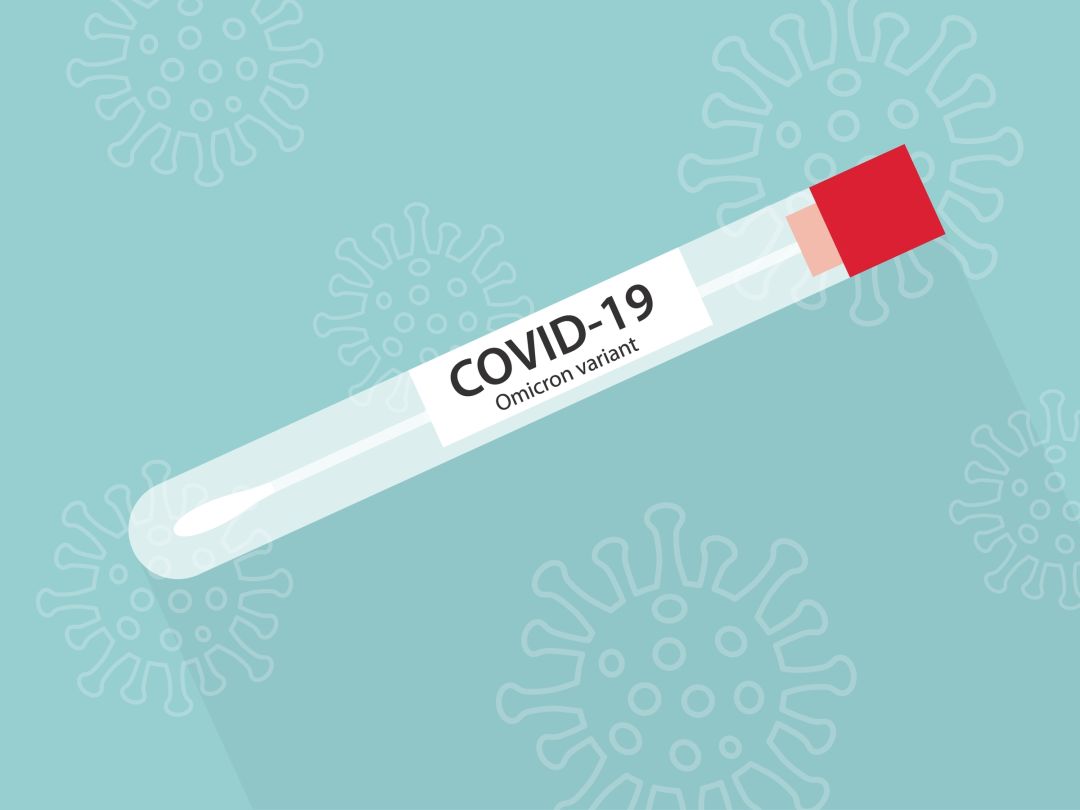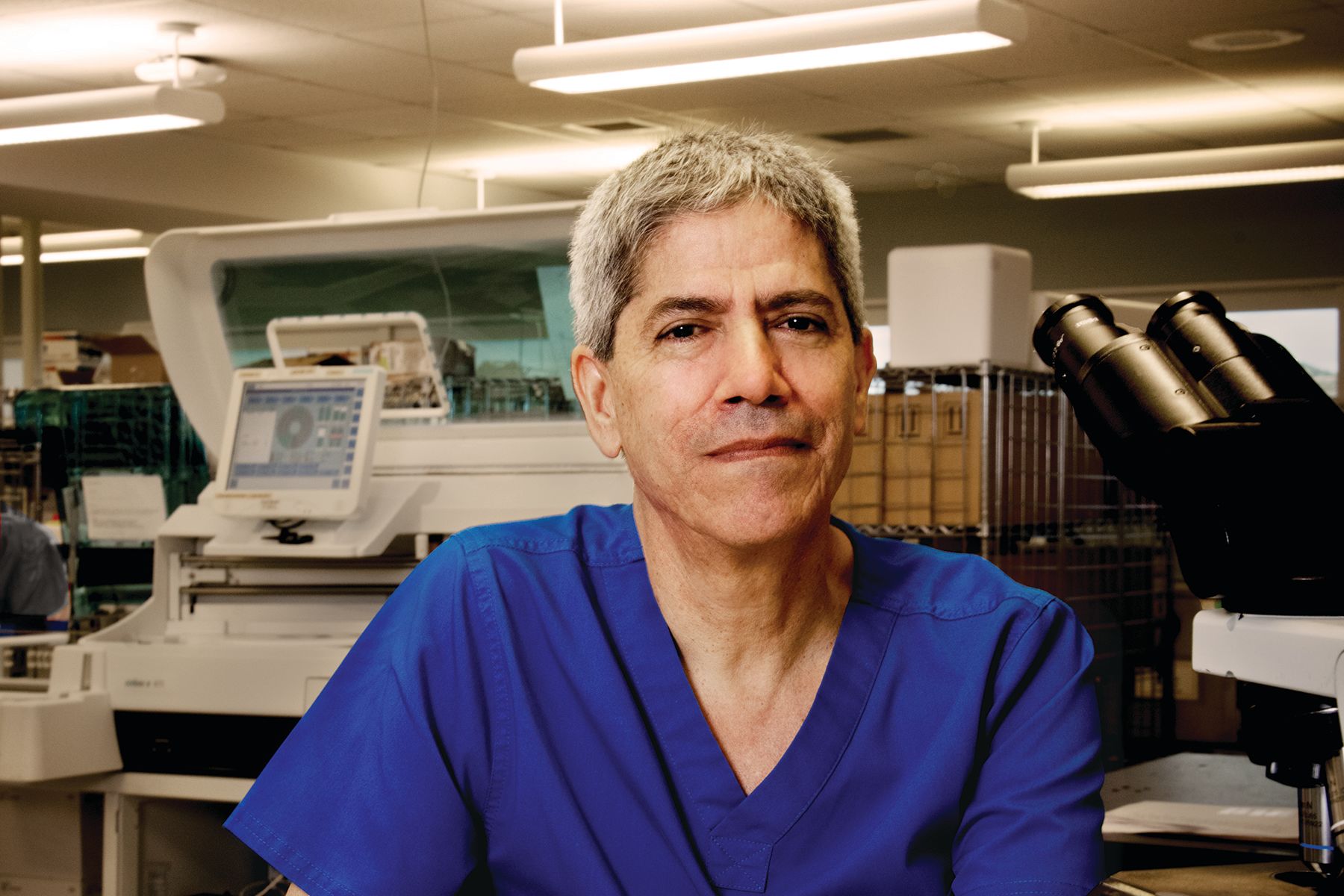SMH: Vast Majority of Local Covid Cases Are Omicron

Image: chrupka/Shutterstock.com
With the steady rise of Covid-19 cases in Florida and concerns over the new Omicron variant mounting, Sarasota Memorial Hospital is keeping the community informed about the hospital's status in a series videos.

Dr. Manuel Gordillo
Image: Courtesy Photo
Infectious disease specialist Dr. Manuel Gordillo posted a video on behalf of the hospital on Thursday, Jan. 6, detailing the status of Omicron locally, hospitalization rates and just how protected vaccinated individuals are. Here's a rundown.
What are the symptoms of Omicron?
"Omicron is like other variants. It's a respiratory virus, so the predominant symptoms are respiratory. One symptom that seems to be more prominent with this particular variant is a more sore throat. Everything else seems to be the same."
What do we know about symptoms of Omicron versus other variants like Delta?
"In terms of symptoms, it's impossible to differentiate one from another. As a matter of fact, sometimes for the majority of people, it's difficult to tell the difference between Covid-19, influenza and other respiratory illnesses. Traditionally, we've said loss of taste and smell is more characteristic of this particular virus, but now we're seeing it tends to cause more sore throats. In the grand scheme of things, it's very difficult to tell."
Is the Delta variant still a concern in Sarasota?
"For now, it's not. We do not know if it will come back and become a concern. At least in our area, Omicron has taken over Delta. There are other places in the country, like the Midwest, where both variants are circulating, but not in our area."
Should vaccinated people be concerned about the spread of the Omicron variant?
"All of us have to be concerned about the rapidity of this spread. If everybody gets sick within the same week, even from a mild virus, there will be a lot of people out of work and not able to provide essential services. We don't want any disease to occur all at the same time. Omicron, in particular, is very transmissible and leads to exponential growth. It has also overcome immunity from previous infection and immunizations.
"The good thing is that immunity from prior infection or immunization can keep you from getting severely ill, which is what we are worried about—the cases that put you in the hospital, ICU and morgue."
Who should get tested for Covid-19 and when?
"We are at a point in this particular outbreak and wave where we don't have enough tests to test everyone. Now we have to go into crisis mode, where it's recommended people only get tested when they're having symptoms, need to return to work or come out of quarantine. This will change once we get past this wave. We will revert back to more widespread use of testing."
When is re-testing necessary?
"There are tons of cases and virus out there right now. If you are positive and have symptoms, do not get re-tested. There's no need to repeat testing for positive cases. On the other hand, at this stage, if you test negative, it could be a false negative. If you test negative and have symptoms, take another test 24 to 36 hours later."
How long should people be isolated? Are five days enough?
"This has been a contentious issue, and I don't envy the CDC. Everything is a bit of a compromise. We cannot afford to halt or paralyze essential services or the workforce because it could have a ripple effect in society and cause other adverse effects.
"After five days, about 80 percent of people will no longer be contagious. About 20 percent of people may still be contagious after five days. Therefore, the CDC said you can return to life as long as you wear a mask all the time (when outside around other people) for the following five days.
"However, this five-day rule doesn't apply to everyone. For example, if you are going to be in contact with someone that is immunocompromised, you should probably wait longer than five days to see them. The same goes if you're around a newborn or those never infected.
"Lastly, if you are still having symptoms, it is not the right time to stop your isolation."
What symptoms are warning signs to go to urgent care or the emergency room?
"Severe shortness of breath, chest pain or confusion. There could be a complication in your lungs or heart. Confusion may be a sign you are low in oxygen.
"If you have access to a pulse oximeter, you can check your oxygen levels yourself. Any result below 94 percent is dangerous. Pulse oximeters are sold in any pharmacy or order online and cost about $20 to $30."
What can we expect in terms of hospitalizations and severe disease in the coming weeks?
"More cases in the community will lead to more hospitalizations. We are starting to see more hospitalizations here at Sarasota Memorial.
"The good thing we are seeing, however, is because a lot of our population is vaccinated, there has been this decoupling effect where several hospitalizations occur, but just in the Covid unit, not the intensive care unit. Patients are not sick enough to go to intensive care.
"For example, we currently have about 90 to 95 Covid cases in the hospital, but only 13 in intensive care. Before, the proportion of ICU patients was much higher. But now, our population is more vaccinated and more immune from previous infections."
What variant is most common in our area, and does it matter?
"It's hard to tell the difference with the variety of other variants. There is very little Delta here in Florida. In Tampa, the closest place where labs conduct regular sequencing, it was found that 95 percent of positive tests in this region were from the Omicron variant. This is an Omicron wave, and in this region, Delta is not a worry."
Should people still be getting vaccinated?
"I will repeat it one more time–if you are unvaccinated, the best thing you can do for yourself, your family and your community is to get vaccinated.
"I also understand that 10 percent of the population is not going to listen to me or to other health professionals; they already made up their minds about not getting vaccinated. Those folks are going to be infected. This virus specializes in finding the non-immune. The easiest hosts for this virus are unvaccinated."
The people who are most protected right now are those who have had three immunizations and prior infection. Their immune system will learn to recognize variants and spike proteins of the virus, and better protect the body.
What is your message to the community as we face the latest Covid surge?
I get we are exhausted and tired. We want things to go away, but the virus keeps pulling tricks on us. But we need to recognize that we have come a long way with vaccines and have been able to reduce hospitalizations and deaths. We are seeing this consistently throughout the world. So, that's a triumph from science.



